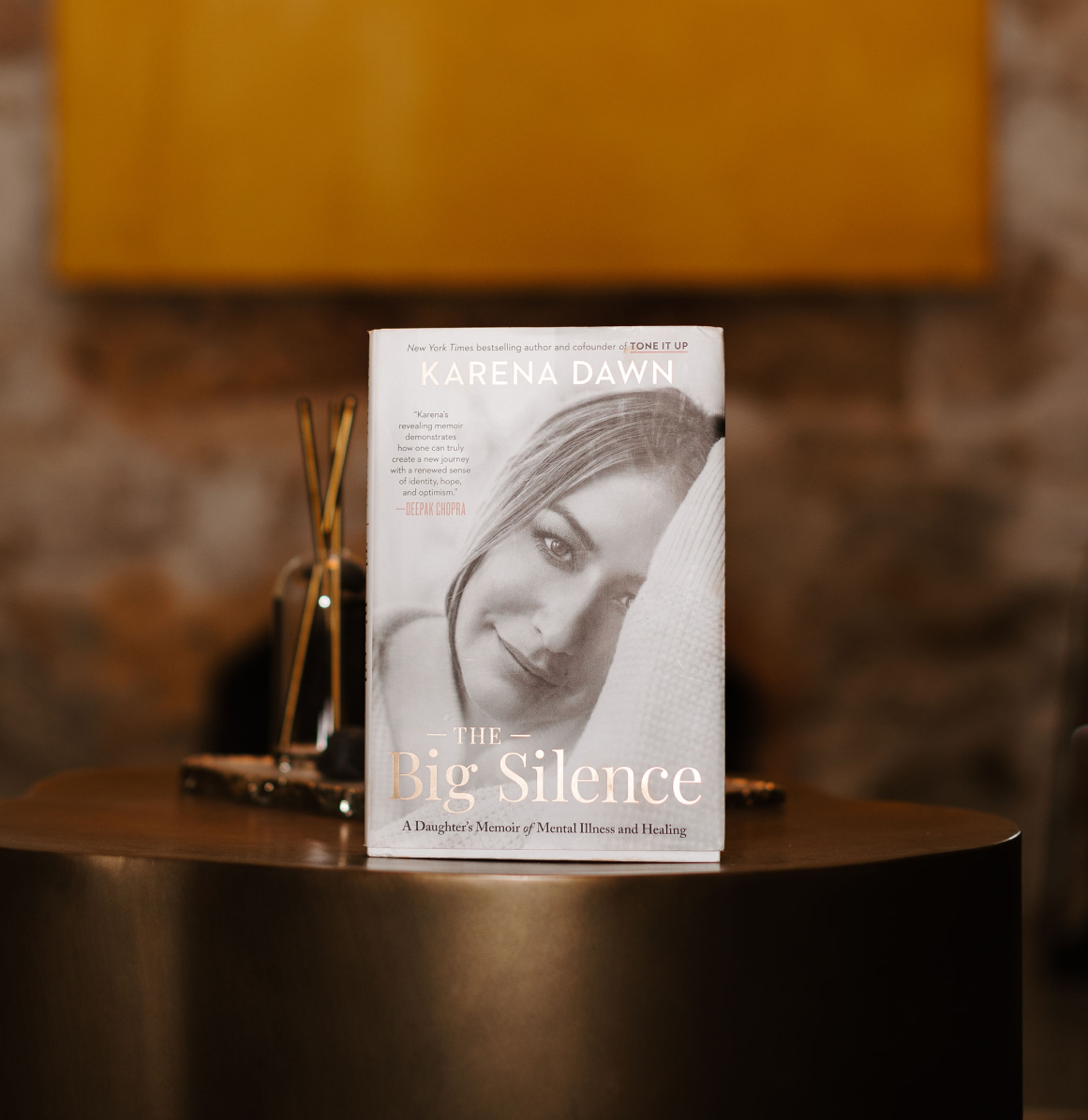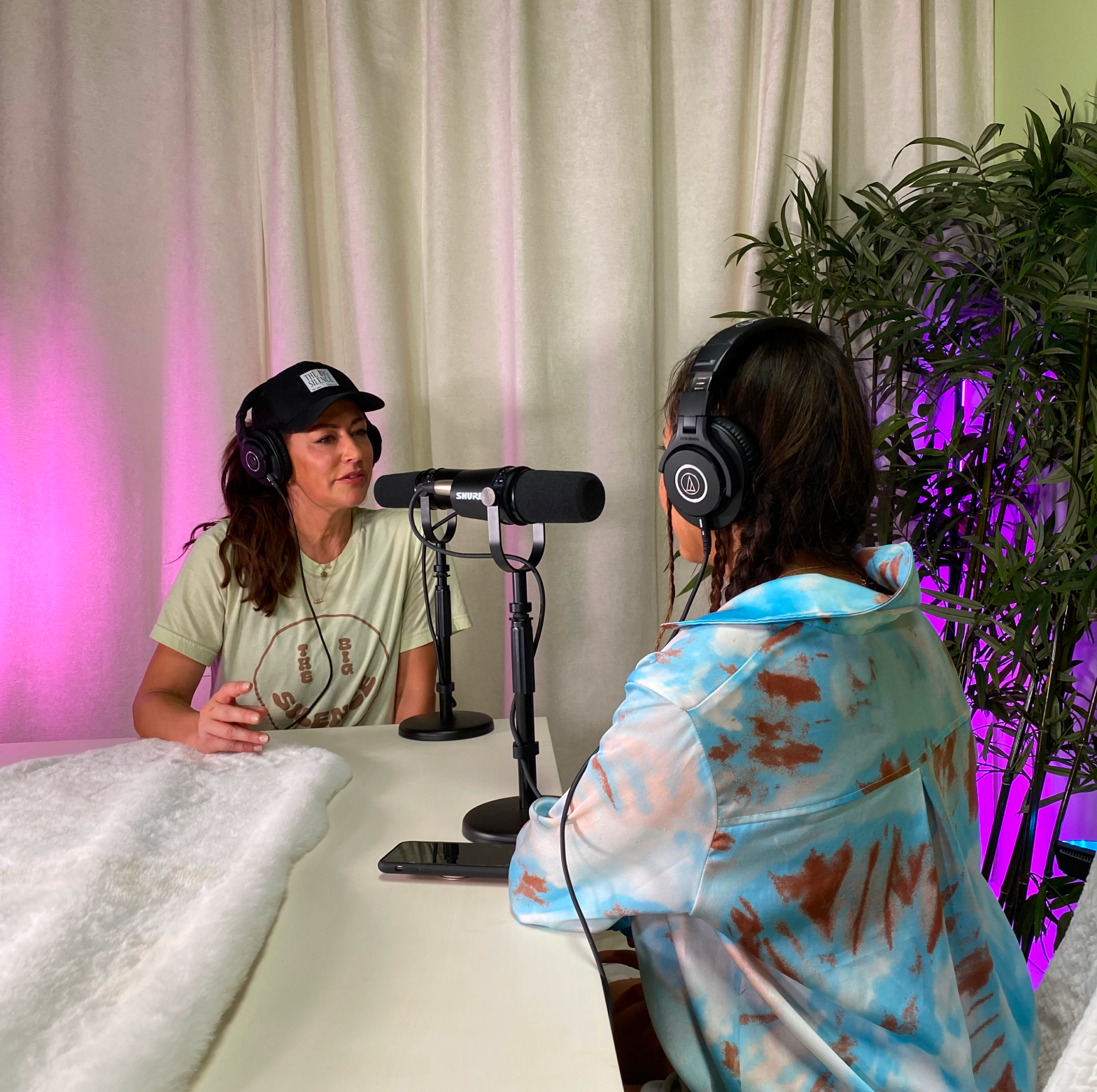Mastering Your Daily Routine: The Gold Star Method to Winning Your Day
This week on Big Feels we are delving into delve into how to develop a daily routine that sticks. A daily routine can be a crucial tool in your mental health toolkit. When life becomes hectic, chaotic, stressful, or exciting, your daily routine is an anchor to help you hold it all together. Built by creating habits, a daily routine provides a sense of structure and stability, which can be particularly comforting during times of uncertainty or stress. It creates predictability in our lives, reducing anxiety and helping us feel more in control.
Karena and James share their tips on how to develop a daily routine that you can stick to. They discuss the importance of small wins, setting realistic goals, and James shares his “Gold Star Method,” that you can start implementing right away, with small and simple steps.
Key Takeaways:
- The significance of celebrating small wins in building momentum and motivation.
- Practical methods for setting realistic and attainable daily goals.
- Step-by-step guide to James' "Gold Star Method" for consistent routine development.
- Actionable tips for implementing these strategies into your daily life effectively.
How Can I Establish A Daily Routine?
If you are thinking about implementing a daily routine, you might use the suggestions that James made for the "Gold Star Method" as a way to structure your day. James cited a hot beverage, moving the body, reading, gratitude, and a consistent wake/sleep schedule as the five points of his routine. The first step in creating your routine is to figure out, what are your mental health non-negotiables?
Identify your priorities. Determine which activities are essential for your mental well-being. Focus on simple, achievable tasks to start. Debbie Whitehead (licensed therapist and TBS board member) has some advice on how to sort out your priorities on the #DebbieDaily:
What activities can I include in my daily routine that might help improve my mental health?
If you're not sure what to include, here are some suggestions for activities to help anchor your routine:
Morning Rituals: Set a Positive Tone for the Day
You might like a hot beverage, lemon water, tea or coffee to get your morning started. If a calming activity is the way you like to start your day: try meditation, stretching, or journaling. Definitely avoid immediately checking emails or scrolling social media to set a positive tone for the day.
If you need a more uplifting and invigorating start, have your workout gear next to your bed and hop into your favorite exercise, walk, run, weights, or explore on YouTube and create a playlist of fun workouts to try (maybe dancing!).
Regular Meals and Scheduled Breaks Support Your Day
Getting caught up in the hustle can lead to skipping meals and not taking the time you need to take care of you. Plan your (nutritious) meals into your calendar if you have to, and make sure you schedule your breaks. Eating at consistent times can regulate blood sugar levels and energy levels throughout the day. Short breaks throughout the day can help to recharge. Use this time for a quick walk or relaxation practice, like deep breathing or listening to music.
Evening Wind-Down: Ending the Day in a Positive Way
Maybe it's a phone call to catch up with a friends, a healthy meal with your family, an evening sweat session, or a good time to read. The evening might be a good time to integrate mindfulness or relaxation exercises into your routine, such as meditation or progressive muscle relaxation, to reduce anxiety and improve focus.
Establish a calming bedtime routine to signal to your body that it's time to relax. Avoid screens at least an hour before bed and engage in soothing activities like reading or taking a warm bath.
Thing to Remember When Implementing a New Routine
Creating a mental health-supportive daily routine requires commitment and patience, but the benefits are well worth the effort. Remember, it's okay to adapt and refine your routine over time to suit your evolving needs. By prioritizing self-care and incorporating small, positive habits into your daily life, you'll cultivate a resilient mindset and a healthier relationship with yourself. Start small, stay consistent, and celebrate your progress along the way. Your mental health matters—make it a priority every day.
- Set Realistic Goals: Break your routine into manageable steps. Start with a few core habits and gradually expand as you become more comfortable.
- Establish Consistency: Stick to your routine as much as possible, even on weekends. Consistency reinforces the benefits of your habits.
- Use Reminders: Set alarms or use apps to remind you of your routine activities until they become second nature.
- Be Flexible: Allow room for adjustments based on your daily needs and circumstances. A routine should support, not constrain, your mental health.
How Making Small Steps Can Build a Routine and Help to Overcome Any Challenge
In this inspiring and motivating conversation with Sasha DiGiulian, Sasha shares how she went from being completely immobilized after a complicated hip surgery, to taking on her toughest climb ever. In an impatient world, it can be easy to overlook that change doesn't happen overnight. Having a plan and taking small steps to your goals leads you to the future you.
“I think it's focusing on like those small things and taking each day [at a time], as monotonous as it can be. It was wild to me to not be able to move after being used to moving my body like four to five hours a day, to just literally seeing my body atrophy and wallow away, and trying not to let my mind go there; of like, ‘what's to come?’ I've become more aware of since being completely like flattened by injury, but it's not something that's new to me, of dealing with just how to strengthen my mind and have more resilience….For me it's come a lot through always focusing on the gratitude, but also the purpose, to help propel me forward.”
"I Can't Fall." Sasha DiGiulian built Resilience through her Routines.
Exercises to Help Build a Daily Routine
Still not sure what you want to implement or how to get started? Try writing down your own 21 day challenge. Pick a few daily habits and make them happen every day for 21 days. Then check into see how you feel. Share with us if you challenge yourself!
Journaling can be a wonderful exercise to help to sort out your goals. In this conversation Mary Lawless Lee shares some of her favorite daily writing prompts.
Maybe rewards are your motivation? Plan something special to reward yourself for sticking to your daily routine. Sing up for that class you've been thinking about, visit someplace new, or make a date with yourself to show up at your favorite spot. What's something that gets you excited that can feel like your "gold star" for a job well done?
BIG FEELS FEEDBACK
How are you really feeling? We'd love to hear about your week, or share your favorite tools for the week in the comments!
|
The Big Silence Foundation, Inc is a U.S. tax-exempt 501(c)(3) organization dedicated to changing the culture of mental health. Consistent with IRS guidelines, all gifts are tax-deductible to the extent allowable by law. Donate to bring change with us!
|
Start a conversation in your The Big Silence apparel.
The information provided is for educational purposes only, and does not substitute for professional medical advice. Users are advised to consult a medical professional or healthcare provider if they're seeking medical advice, diagnoses, or treatment.
**Please note that if your thoughts start becoming hopeless or suicidal, contact emergency at 988 or 911 andcrisis services immediately. You can find more resourceshere. Text HELLO to 741741 to be connected with a trained crisis counselor.










